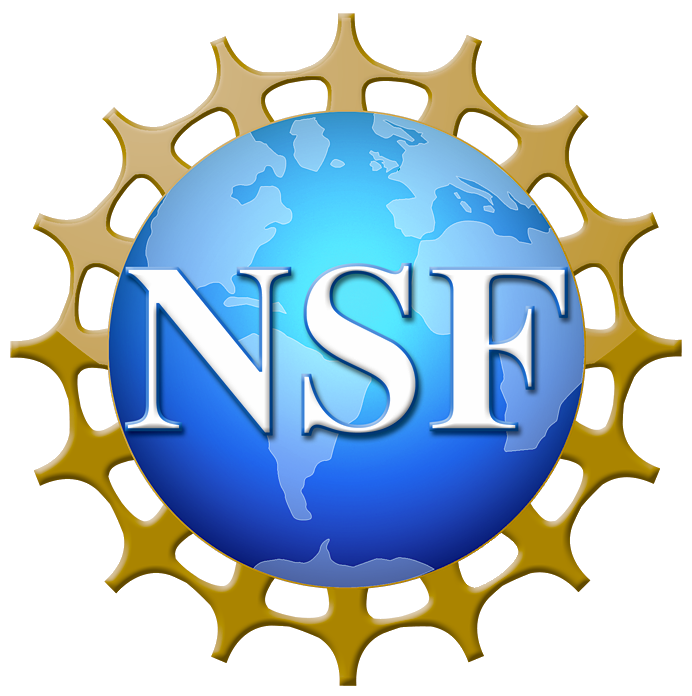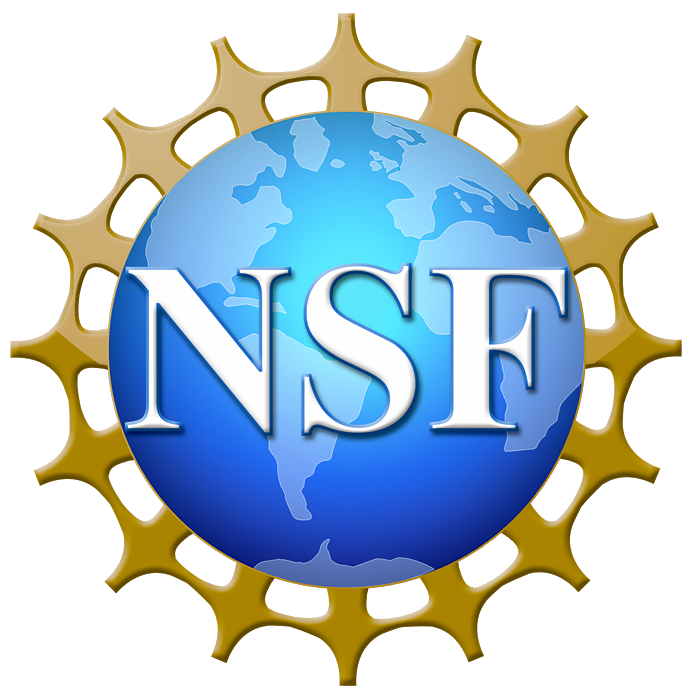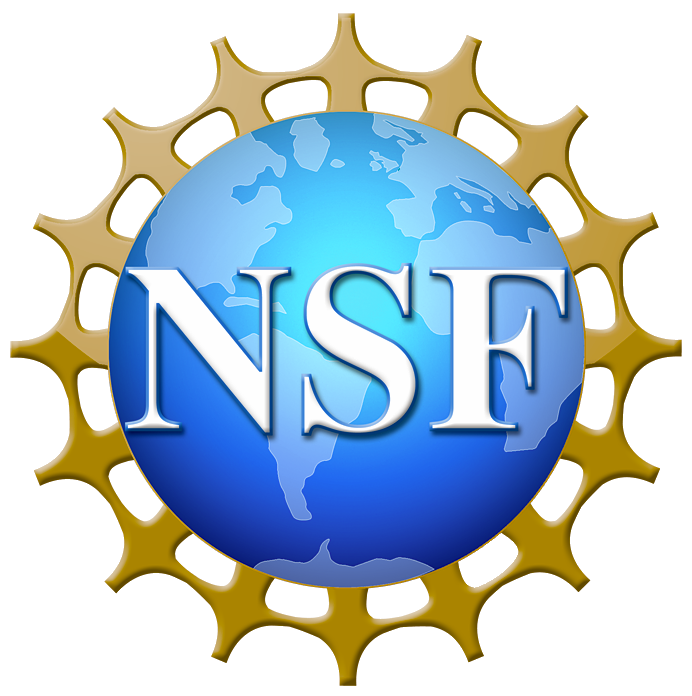GUIDE Research Group
Welcome to the Growing in our Understanding of Inclusive Diversity in Engineering (GUIDE) Research Group. Inspired by and changing demographics in the United States and globalization, the members of GUIDE are committed to expanding opportunities and enriching experiences in engineering.

Our vision of a more diverse engineering community–locally, nationally, and globally–inspires our quest to answer the following questions:
• How might we better support a diverse population of students?
• How might we make engineering more inclusive?
• How might we broaden participation in engineering?
• How might we educate engineering students and faculty about diversity?
GUIDE is directed by Dr. Walter Lee and consists of undergraduate and graduate students. It is a collaborative effort between researchers and student-support practitioners. Our mission is to advance understanding of the role that diversity plays in engineering, actively and intentionally connecting research to practice. Members of GUIDE (1) conduct practice-informed research, focused on identifying areas of opportunity to advance diversity and inclusion; and (2) develop and evaluate research-based solutions for making engineering a more accessible and supportive environment.

The Virginia Tech Network for Engineering Transfer Students (VT-NETS) is a collaborative effort between Virginia Tech, Virginia Western Community College, and Northern Virginia Community College. This S-STEM project will establish stronger networks between Virginia Tech and the Virginia Community College System to increase the success of engineering transfer students following the community college-to-bachelor's degree pathway. The total number of scholarships awarded across all three institutions is 336 over five years. Community colleges are cost-effective gateways to four-year universities for academically talented, low-income students. The creation of a strong partnership, including early and frequent interaction between the student and the four-year institution, will enhance the potential for successful student transfer and timely completion of a baccalaureate degree. VT-NETS creates this partnership and serves as a research-based model for future collaboration between community colleges and four-year institutions.
The goal of this project is to design, implement, and empirically test curricular and co-curricular activities that support the transfer of students following the community college-to-bachelor's degree pathway to an engineering degree. Aligned with the mission of the NSF S-STEM program, the research team will use an embedded case study approach organized around the transfer student capital framework to advance understanding of how various factors affect the success, retention, transfer, and graduation in engineering for low-income students. The results of this project will help educators develop new interventions and fine-tune current efforts (e.g., making them more sustainable, efficient, and effective) to add value to existing strategies. Such integration with current student support practices will more broadly increase the success of transfer students in engineering nationwide. VT-NETS will illuminate and prioritize the human, financial, and physical resources dedicated towards these efforts and will enhance the infrastructure at the partner institutions for supporting all transfer students in engineering.

Researchers at Virginia Polytechnic Institute and State University propose to conduct exploratory research through the EHR Core Research (ECR) program to further develop and validate a survey instrument that can be used by college administrators and student-support practitioners to assess the magnitude of institutional support received by undergraduate students in science, technology, engineering, and mathematics (STEM). An instrument to do this work does not currently exist. Such an instrument is important because it will facilitate college administrators monitoring progress in this area. It will also lead to the identification of opportunities with regard to making local STEM learning environments more supportive from the perspectives of undergraduate students in general. The research team will survey students at three institutions to assess their local environments, provide data-driven evidence for interventions tailored to the unmet needs of the target population, and monitor progress relative to effectively supporting students.
Student-retention theories traditionally focus on institutional retention, even though efforts to support STEM students occur at the college level. The proposed study will bridge this gap between research and practice by extending and empirically testing the Model of Co-curricular Support (MCCS), which specifically focuses on supporting and retaining underrepresented groups in STEM. The project will extend a prior student-retention theory to provide evidence that STEM researchers, educators, administrators, and policy makers need for informed decisions to improve STEM learning environments and design effective programs, activities, and services. The project will enable institutions to gauge the effectiveness of their institutional support for undergraduate STEM students, including those from under-served populations. The ECR program emphasizes fundamental STEM education research that generates foundational knowledge in the field. Investments are made in critical areas that are essential, extensive, and enduring: STEM learning and STEM learning environments, broadening participation in STEM, and STEM workforce development.
Faculty are at the center of many potential solutions to national and global calls for transformative improvements in STEM education. The last 20 years have seen significant advancement in understanding of how to create effective learning environments for STEM education. While many individual faculty have adopted new approaches to teaching, change has not been deep or widespread enough to make a major impact across all of STEM education. Better understanding is needed of how faculty can become change agents in order to effect this change. This study focuses on exploring the experiences of early career engineering education faculty as they attempt to impact the engineering education experiences of students locally and more broadly. Engineering education faculty are unique in that they have formal training in the types of change desired, and are often embedded in disciplinary engineering departments where they can apply their knowledge to create change. Understanding their experiences and the academic cultures in which they are working will provide information on how they can and cannot influence education practices in their departments. Doing so will enhance our efforts to train and develop faculty prepared to drive change in engineering education.
In the first phase of a two-phase study, collaborative inquiry and collaborative autoethnography methods will be used to systematically examine the PIs' own experiences as six early career faculty members in diverse settings: this will include scrutinizing acceptance of ambiguity, responses to disappointments and challenges, willingness to adapt, and ability to collaborate. Subsequently, in the second phase, the experiences of 12-15 additional early career faculty members will be examined to refine and expand on the phase one results, increasing their applicability to multiple settings. The results of this project will (1) advance the engineering education community's understanding of existing structures for facilitating change (or the lack thereof) in engineering education (2) identify barriers and supports for making change as early career engineering education faculty; and (3) develop a co-constructed understanding of how to better prepare and support faculty to exercise agency as it relates to impacting engineering education during their first few years in academic positions. These advancements are critical because the calls for change in engineering education will continue as technological advances are made and the role of engineers in society continues to evolve. By identifying the barriers and supports that affect early career faculty's abilities to take strategic and intentional actions towards achieving impact, the results of this study will enable engineering education graduate programs and national engineering education organizations to make programmatic changes to benefit future faculty. In addition, the evidence-based insights resulting from this study have the potential to expedite the on-boarding process of new engineering education faculty, promote improvements in STEM education nationally by faculty at all stages of their careers, and support the development of the field of engineering education research.
While there have been substantial initiatives designed to broaden the participation of underrepresented groups, producing a diverse workforce is unlikely if the country continues to lose them at each of the major junctures along the education-to-workforce pathway: K-12 education, undergraduate education, graduate education, and workforce. While researchers have published numerous studies on underrepresented groups over the past four decades, trends have not significantly improved, suggesting a disconnection between research and practice and a greater need to investigate the issue of broadening participation at every major segment throughout the education-to-workforce pathway. As a result, the investigators propose to conduct a research project that critically examines the Innovation Cycle of Educational Practice and Research as it relates to broadening participation in engineering and computer science. This study will advance our understanding of the disconnect between research and practice, identify barriers to progress, and set a national agenda for broadening the participation of African Americans in engineering and computer science. The agenda will unify the current literature on this topic, frame key issues, and pose significant questions around the development of a diverse engineering workforce. Aligned with current NSF broaden participation interests and priorities, this agenda will provide: (1) researchers with a backdrop for identifying problems that can be investigated empirically; and (2) practitioners with practical strategies for addressing barriers present in their local context.
The research design, guiding this study, will enable us to synthesize the plethora of existing recommendations, while obtaining feedback from researchers, practitioners and other stakeholders alike. The research design will also serve as a model for subsequent studies on broadening the participation of other underrepresented groups in STEM. Further, to readjust current practices for addressing this persistent problem and figure out what is pushing students away, this project involves systematically reviewing the theoretical and scientific literature on barriers to participating and proposing new solutions for each juncture of the education-to-workforce pathway; interviewing subject-matter experts (n=60) to discuss their professional experiences regarding broadening the participation of African Americans and what can be done to gain momentum in African Americans participation in engineering; and conducting a Delphi study (n=20) to reach consensus on the key issues and gaps in our understanding, significant questions, and breakdowns in the Innovation Cycle of Educational Practice and Research. This project will produce the following outcomes: (1) a literature review synthesizing and highlighting the current state of research and practice on broadening the participation of African Americans and an Innovation Cycle of Broadening Participation; (2) a conceptual model that depicts the current relationship between research and practice in this context; and (3) an outline of a national agenda for coordinating the efforts of stakeholders committed to broadening participation of African Americans in engineering and computer science.

This is a collaborative proposal among the National Society of Black Engineers (NSBE), Virginia Tech, and Purdue University, submitted to the Successful Project Expansion and Dissemination strand of the Innovative Technology Experiences for Students and Teachers (ITEST) program. It aims to expand the implementation of a NSBE-supported program, "Summer Engineering Experiences for Kids", from 14 sites in 2016, to 31 by 2019; from 3,825 3rd-5th grade African American, Hispanic, and female students in 2015, to cumulatively 27,000 across the nation over the three-year duration of the project. By 2019, a total of 42,000 students will have been impacted by the program since its inception in 2007. The project will advance efforts of the ITEST program to better understand and promote practices that increase students' motivations and capacities to pursue careers in the fields of science, technology, engineering, or mathematics (STEM) by engaging them in a summer program through hands-on, team-based engineering design projects led by collegiate mentor-teachers. The project will use "A World in Motion"--an engineering curriculum for elementary and middle school children developed by the Society of Automotive Engineers, in addition to other STEM curricula to be incorporated across sites. Participants will experience applied engineering and computer programming learning opportunities, including engineering principles and related mathematics and science concepts and practices through selected activities. While expanding the program, researchers in the partnership will investigate the contextual factors that facilitate or constrain its implementation in order to develop a prototype with a potential to be used in various learning environments. Thus, the overall hypothesis of the work will be that organizational contexts enable, inhibit, and shape the experiences that students have, and consequently influence their outcomes.
The three research questions will be: (1) For each site and across all sites, what is the change in students' STEM-related academic and career identity, conceptual knowledge, and interpersonal and intrapersonal skills?; (2) What is the relationship between students' academic motivation (i.e., empowerment, usefulness, success, interest, caring) and their STEM-related academic and career identity, conceptual knowledge, and interpersonal and intrapersonal skills?; and (3) How do organizational context factors influence students' experiences and outcomes? To address the first question, outcome measures will be administered in a pretest-posttest format to identify changes in students' STEM-related outcomes over the course of the program. To address the second research question, the project will use multilevel modeling to incorporate site-specific contextual variables. To address the third research question, the project will employ a multi-case study approach to investigate variation in available resources and implementation strategies across sites each year. Through multiple data collection methods, the research will capture the influential contextual factors of different sites and their relationship with students' experiences and outcomes. An advisory panel comprising scholars and practitioners in engineering education, engineering outreach programs, and research will provide oversight of the project's progress and an independent mechanism for evaluation. An external evaluator will conduct both formative and summative aspects of the project. The key outcome of the effort will be a research-informed and field-tested model to increase African American, Hispanic, and female students' achievement and engagement in STEM disciplines.
- Lee, W.C. and Matusovich, H.M. (2016). A model of co-curricular support for undergraduate engineering students. Journal of Engineering Education, 105(3), pp. 406-430.
- Lee, W.C., Matusovich, H.M and Brown, P.R. (2014). Measuring underrepresented student perceptions of inclusion within engineering departments and universities. International Journal of Engineering Education, 30(1), 150-165.
- Lee, W.C., Kajfez, R.L. and Matusovich H.M. (2013). Motivating engineering students: Evaluating an engineering student support center with the MUSIC model of academic motivation (JWM6747). Journal of Women and Minorities in Science and Engineering, 19(3), 245-271.
- Lee, W.C., Seimetz, C.N, and Amelink, C.T. (2014). Examining the transition to engineering: A multi-case study of six diversity summer bridge program participants. Proceedings – ASEE Annual Conference and Exposition, Indianapolis, IN.
- Lee, W.C., and Matusovich, H.M. (2015). Minority/multicultural engineering program impact: A student perspective of co-curricular support. Proceedings – ASEE Annual Conference and Exposition, Seattle, WA.
For more information about the GUIDE Research Group, email Dr. Walter Lee



